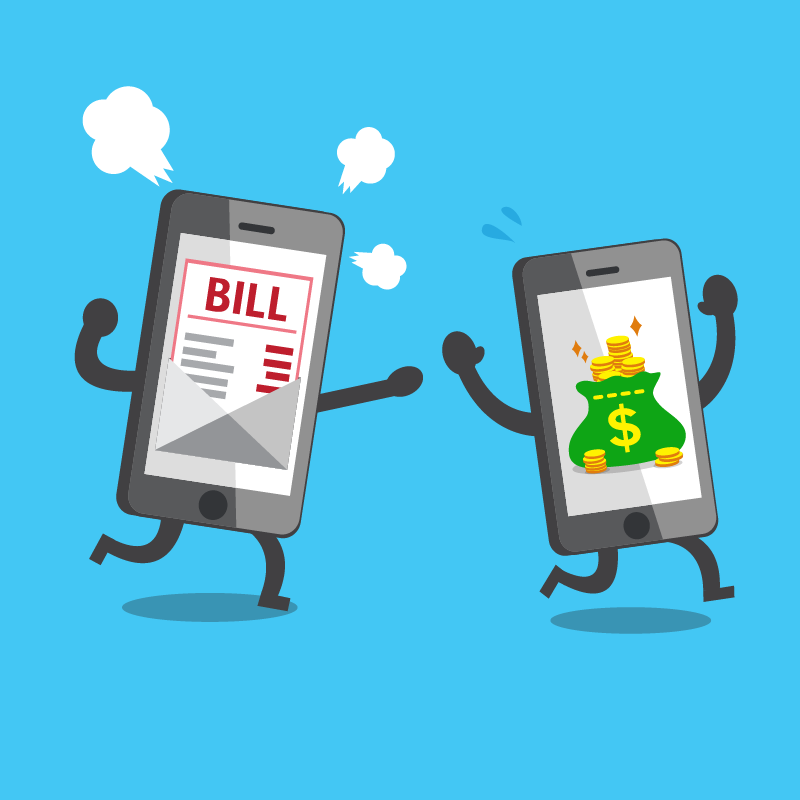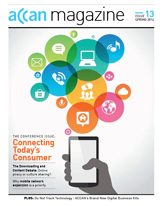 Results from a survey commissioned by ACCAN show that 12 per cent of respondents had experienced unexpected third party charges on their mobile phone bills in the last six months. Consumers can opt out of these services by texting ‘STOP’ to SMS notifications they receive from third party providers. However, ACCAN’s survey found that over three quarters (77 per cent) of people who replied ‘STOP’ still had the charge added to their bill. Over a third (36 per cent) of unexpected charges were for $10 or more.
Results from a survey commissioned by ACCAN show that 12 per cent of respondents had experienced unexpected third party charges on their mobile phone bills in the last six months. Consumers can opt out of these services by texting ‘STOP’ to SMS notifications they receive from third party providers. However, ACCAN’s survey found that over three quarters (77 per cent) of people who replied ‘STOP’ still had the charge added to their bill. Over a third (36 per cent) of unexpected charges were for $10 or more.
Read more: Third Party Charges - consumer experiences and expectations
The summary below outlines ACCAN's activities from 1 September – 30 November 2018.
Wamboin Communications Action Group Inc.
This project assisted regional and rural areas to effectively engage with their local communities and build a business case for the implementation of network capabilities to support their current and future needs. The project delivered a set of resources that can be applied across regional, rural and remote areas to help communities identify local requirements to achieve better Internet connectivity to support their economic and social growth.
Read more: Achieve Better Broadband for Regional Communities
![]()
Tablet devices - Tasmania
The resource provides a series of guidelines on how to make Word and PDF documents accessible and outlines a checklist to create accessible publications and presentations. It also lists the accessibility features of different online meeting platforms such as Zoom, Microsoft Teams and Google Meet, and identifies key physical, visual and audio requirements for accessible physical meeting spaces.
Read more: Accessibility Best Practice Guide
Write comment (0 Comments)National communications consumer body ACCAN is encouraging consumers to Stop, Check, and Protect to remain scam safe this Black Friday and Christmas sales season.
With nearly $7 billion expected to be spent in the four-day period between Black Friday and Cyber Monday, criminals will be intensifying efforts to steal money from unsuspecting online shoppers.
Read more: Great discounts, good deals and deceptive scams abound this sales season
Over the last year the communications landscape has changed dramatically. Consumers have never had more choice yet many consumers are confused about the products and services on offer, and service complaint numbers continue to rise.
In this conference we talk about how the market does, and does not, deliver for consumers. Is customer service improving? Will emerging technology provide better options for consumers in the future? What is the communications industry doing to focus on the vital service part of their businesses and how can it be done better?
Read more: ACCAN National Conference 2012: Delivering for Consumers
Download: ![]() My home broadband is slow or unreliable57 KB
My home broadband is slow or unreliable57 KB
Download: ![]() My home broadband is slow or unreliable301.81 KB
My home broadband is slow or unreliable301.81 KB
Many factors can affect the quality of your broadband connection. This can include the quality of the wiring to your home or your equipment inside the home. Read ACCAN’s tip sheet for more information on this.
If you cannot use the internet in the way you need to due to poor speeds or connection problems, you should:
- Do an online speed test to compare your home internet speed to your retail service provider’s (RSP) advertised speeds. Keep records of the speeds you get and how many drop outs occur if your service is unreliable.
- Contact your RSP and clearly state that you want to make a complaint about slow speeds or an unreliable service.
Read more: My home broadband is slow or unreliable
Write comment (0 Comments)

Download: ![]() Connecting Todays Consumer.pdf1.46 MB
Connecting Todays Consumer.pdf1.46 MB
Download accessible version: ![]() Connecting Todays Consumer.doc105.5 KB
Connecting Todays Consumer.doc105.5 KB
 ACCAN is calling for a whole-of-government procurement policy for accessible ICT to enable Australians with disability to have greater opportunity for economic, social and community participation.
ACCAN is calling for a whole-of-government procurement policy for accessible ICT to enable Australians with disability to have greater opportunity for economic, social and community participation.
The Australian Commonwealth Government does not have a comprehensive procurement policy for the purchase of accessible information and communications technology (ICT). The negative roll-on effects of this policy gap have significant implications for the whole Australian community. In particular the ramifications of this ongoing policy gap continue to disadvantage and exclude some of our most vulnerable citizens with disability.
 ACCAN and Infoxchange have come together to produce a report focusing on the more than 427,000 dwellings (about 5 per cent of housing stock) in Australia which fall into the category of social housing – housing provided by the government and community sectors to accommodate people in the lowest income brackets. Residents of social housing are more likely to fall on the wrong side of the digital divide, and face a range of barriers in getting connected. These barriers can be practical, such as getting permissions to install connections in old apartment blocks, budgetary, where the cost to sign up may be prohibitive, or may be related to digital literacy.
ACCAN and Infoxchange have come together to produce a report focusing on the more than 427,000 dwellings (about 5 per cent of housing stock) in Australia which fall into the category of social housing – housing provided by the government and community sectors to accommodate people in the lowest income brackets. Residents of social housing are more likely to fall on the wrong side of the digital divide, and face a range of barriers in getting connected. These barriers can be practical, such as getting permissions to install connections in old apartment blocks, budgetary, where the cost to sign up may be prohibitive, or may be related to digital literacy.






